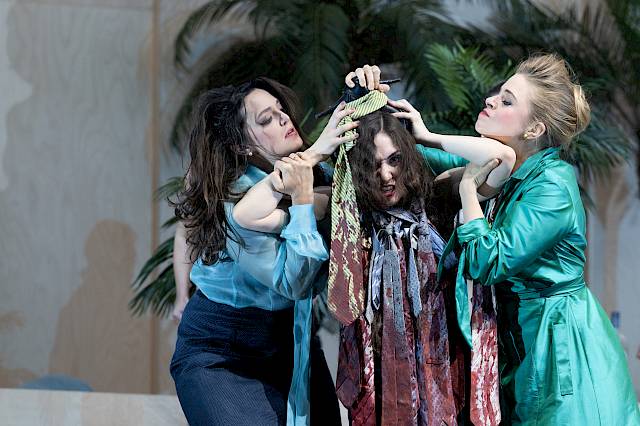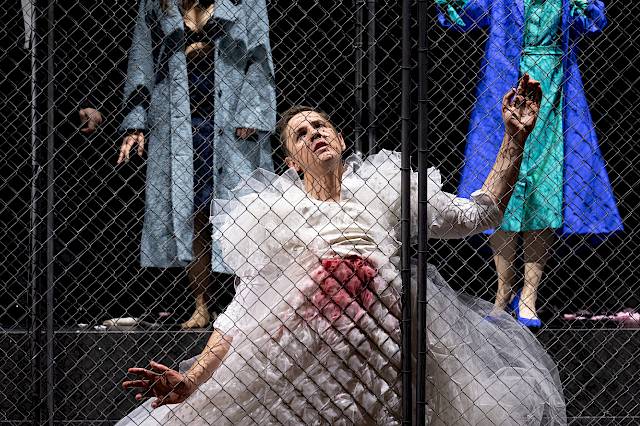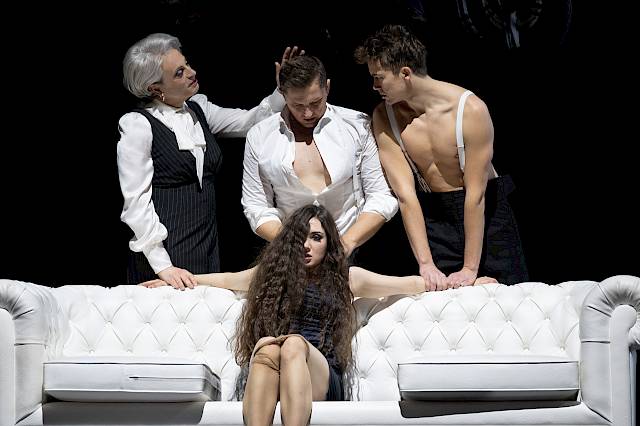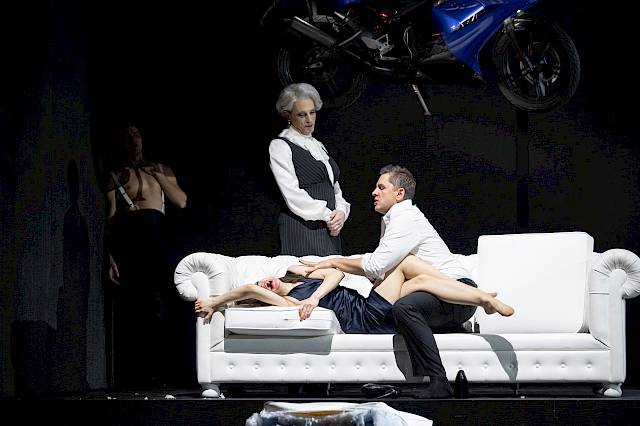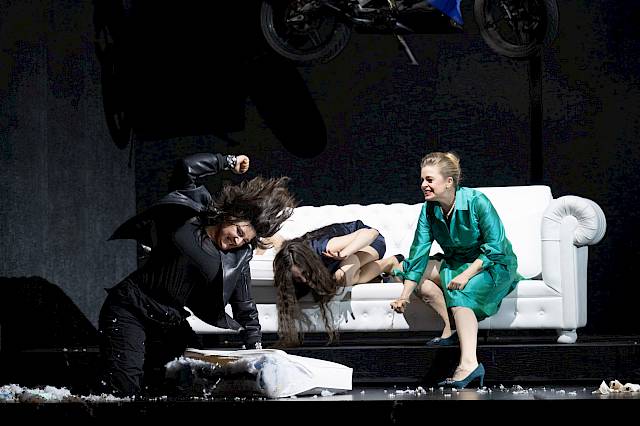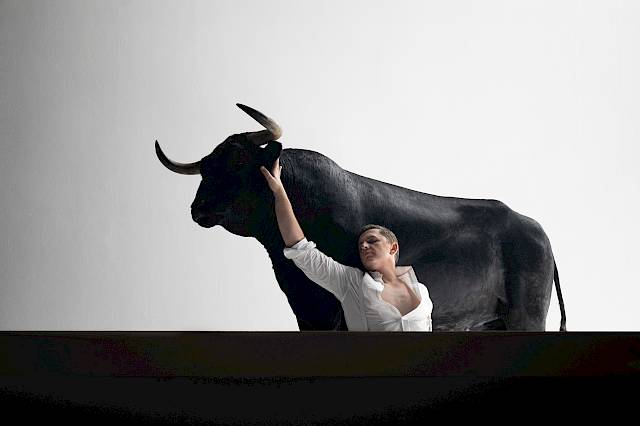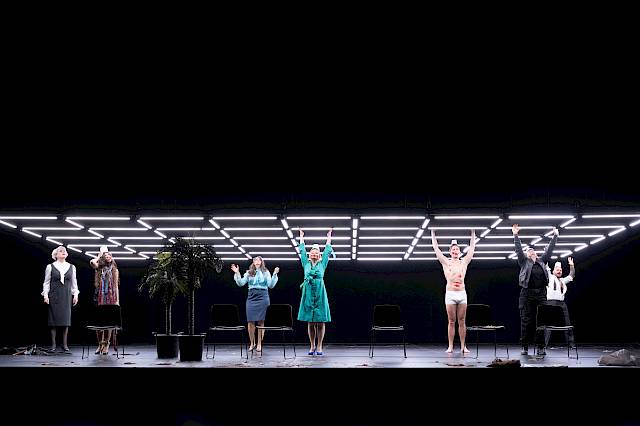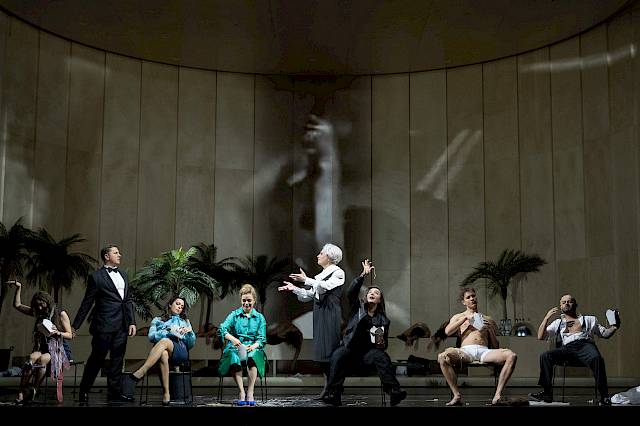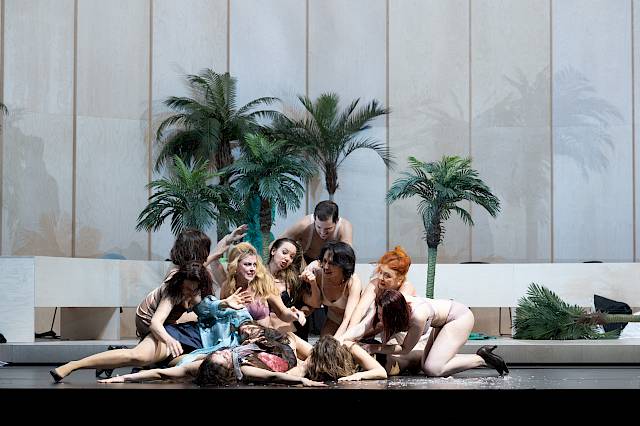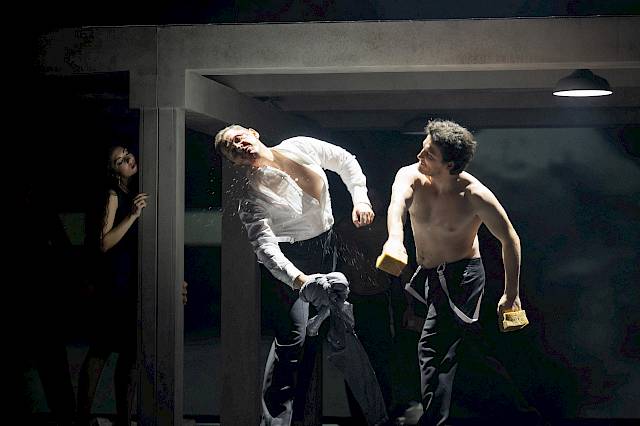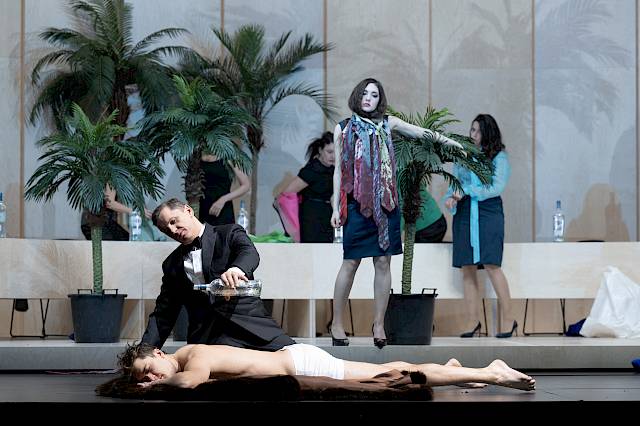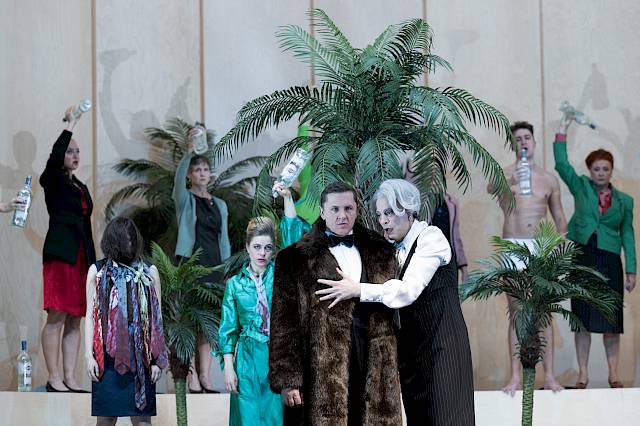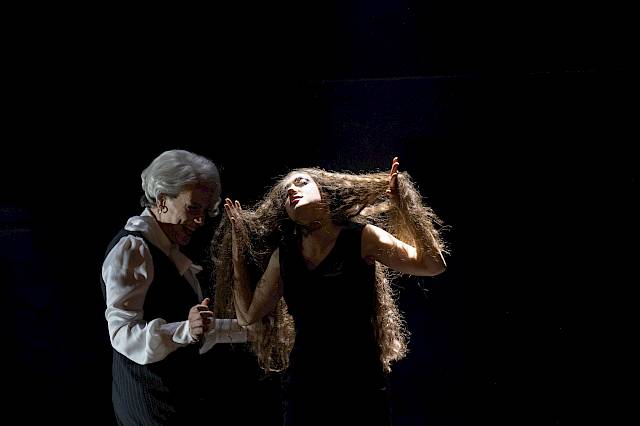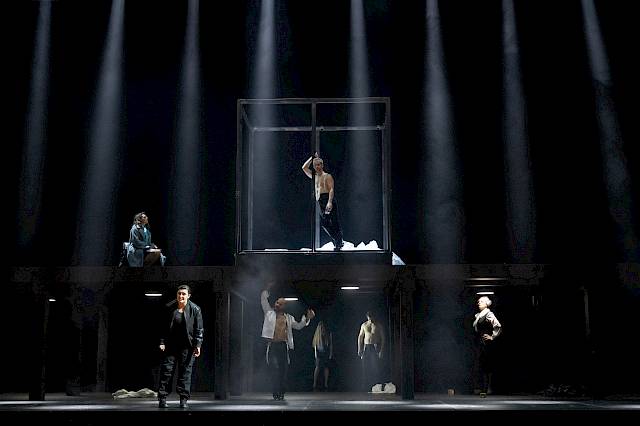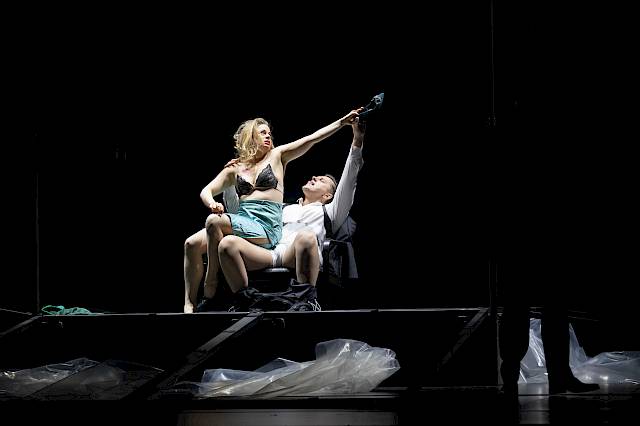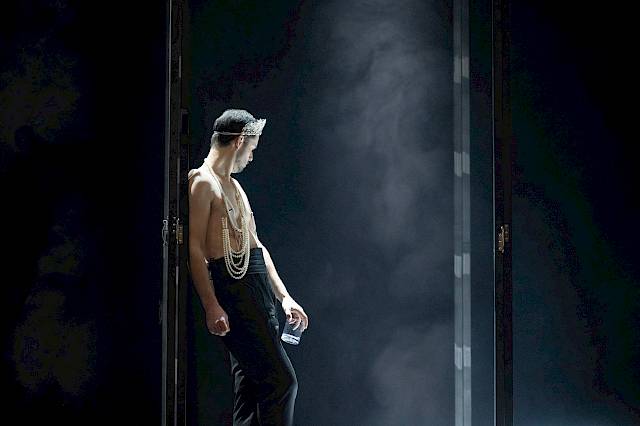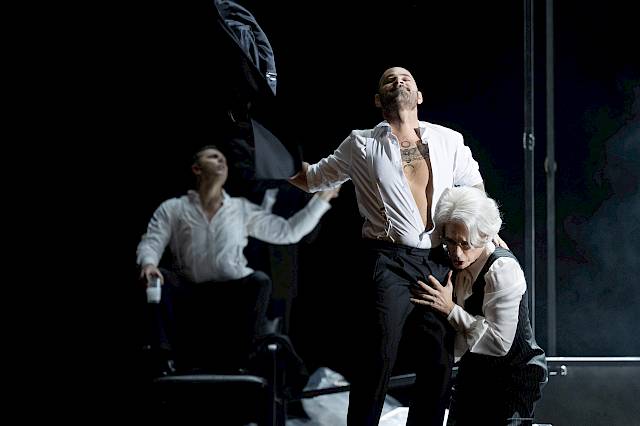Eliogabalo
Francesco Cavalli (1602-1676)
Dramma per musica in three acts
Libretto by Aurelio Aureli
In Italian with German and English surtitles. Duration approx. 3 H. 10 Min. incl. intermission after approx. 1 H. 40 Min. Introduction 45 min before the performance.
Introductory matinee on November 20 2022.
Supported by 
Good to know
Eliogabalo
Abstract
Eliogabalo
He is the example par excellence of the decadence of ancient Rome: Elagabalus, or Heliogabalus in English, ascended to the throne of the Roman Empire in the year 218, at the age of just 14. Four years later, he was brutally murdered for his excesses and bizarre sexual predilections. His life was brief, and his biography reads as if it were written to be the plot of an opera, rife as it is with political megalomania. At its center is an emotionally unstable politician who unscrupulously abuses his power to sate his lustful appetite. Eliogabalo desires ownership of all women, and to reach his goals, he resorts to rather inventive means. He founds a senate, for example, made up only of women. What at first glance might seem progressive is ultimately a ploy intended to fulfill his own pleasure. When his plan fails to produce its intended goal, he uses sleeping pills to bend Gemmira, whom he desires above all, to his will. He even goes so far as to resort to murder: he plans a brutal attack on Alessandro, Gemmira’s betrothed, who is more beloved by the people than Eliogabalo is and could contest his power...
Francesco Cavalli was Monteverdi’s colleague and pupil. He created Eliogabalo in 1668 for Venice’s Carnival season, but it was withdrawn shortly before its premiere, and was considered a lost work. It was only rediscovered in 1999. Although Cavalli was the most successful composer of his time, the reasons why Eliogabalo never premiered likely had to do with the changing tastes of the Venetian public, which at the time favored memorable melodies. Today, Cavalli is appreciated for his powerful, dramatic recitatives that sound modern even to our ears.
Director Calixto Bieito, who recently thrilled Opernhaus Zürich audiences and critics alike with his production of Monteverdi’s Poppea, will take on this unquestionably topical story about an egocentric autocrat, and explore the question of what masculinity means today. Dmitry Sinkovsky is one of the most versatile musicians of his generation, and together with the Orchestra La Scintilla he will bring Cavalli's music colorfully to life. Yuriy Mynenko, one of the most internationally sought-after countertenors today, will make his debut at the Opernhaus Zürich in the title role.


